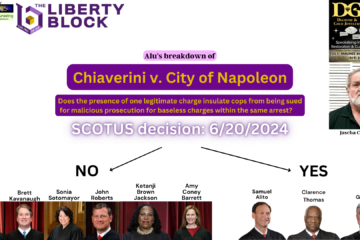You’re going about your daily business, perhaps on a walk through your neighborhood. During this walk, you come across two children at a lemonade stand. “Lemonade $0.50” The signage says. Not the price you paid in years past, but you’ve worked up a thirst. You ask to buy a cup from the children. They reply “For $5 you get a special cup that will give you 50% off our lemonade all summer. We’re open Mondays, Wednesdays, and Fridays.” After some thought, you decide to upgrade to the discounted cup. After taking a sweet sip of the lemonade you ask the pair what they’re saving up for. “A Nintendo Switch!” They answer in unison.
Entrepreneurship, it goes without saying, is a way for people (even children) to be able to earn money by providing a service or product to a customer base. This can range from gutter cleaning to running a lemonade stand like the one previously mentioned. It provides a path to personal freedom and an escape from the traditional means of employment. Instead of serving one customer (your employer), you’re serving multiple customers (your clients). But what happens when you reach a slowdown or lose the passion for the job that is currently your hobby? These questions likely plague most of us, entrepreneurs or not. These questions are asked and answered in the Studio Ghibli animated film ‘Kiki’s Delivery Service’.
(Spoilers from this point forward)
The story of Kiki’s Delivery Service is fairly straightforward. Kiki is a 13 year old witch about to leave her pastoral hometown accompanied by her cat familiar Jiji to spend a year on her own learning about the outside world, which is a tradition amongst witches. Kiki only has the ability to fly on her broom but is determined to learn proper skills while she’s away. After some time traveling, she makes her home in the seaside city of Koriko, a bustling town with busy traffic, busy people, and busy businesses. Kiki soon realizes that Koriko is not the most welcoming to her, not out of prejudice, but due to the fact the society of Koriko doesn’t accommodate unaccompanied children. Luck would be on Kiki’s side, however, as a baker named Osono attempts to return a pacifier to a mother. Seeing an opportunity to help, Kiki offers to return the pacifier. Due to this act of kindness, Osono offers a place to stay and meals on the condition that Kiki helps around the shop. Kiki also gets an idea from this chance encounter: a Delivery Service.
Kiki starting a delivery service is a way for her to make use of her flying to fulfill a need within the community, and luckily for her, it isn’t long until she has her first customer. Kiki’s first customer is a woman sending a cat doll (That suspiciously looks like Jiji) to her nephew for his birthday, Kiki sets off and things are looking up until a gust of wind knocks her into a forest. After escaping a murder of crows harassing her, Jiji reveals to her the doll is gone. With little time on their hands, Jiji takes the place of the doll until Kiki can find the doll in the woods. After returning to the woods, Kiki finds the doll in a log cabin occupied by an artist named Ursula. When told the story, Ursula returns the doll. Unfortunately, it sustained some damage from the fall. Ursula offers to sew the toy back together in exchange for Kiki cleaning her cabin floors. Kiki and Jiji are reunited and they return home safe, but a bit scuffed.
Time passes and Kiki has solidified her business, though her customers are not as numerous as she would desire. That changes when a man sends an expedited package and an older woman sends a pie to her granddaughter. She completes the first delivery with minimal speed-bumps. But the second one has a fair share of setbacks from the Grandmother’s oven not working to a storm almost raining out Kiki. Despite all this, she makes it to her delivery on time, only to be greeted by a girl who didn’t want her grandmother’s pie in the first place. Disheartened, Kiki returns home.
After the rain, Kiki falls ill and takes time off from her deliveries to relax, but Osono asks Kiki for a special delivery. Kiki decides to complete this delivery on foot. After taking some time enjoying the city views from the ground, it’s revealed that the delivery is for Tombo, a young boy she slowly befriended throughout the movie. After receiving his package, Tombo shows Kiki his propeller bike, and takes her for a ride on it. Even though the two of them crash and the bike is destroyed, they laugh it off and spend time conversing on the beach within view of a large dirigible. Kiki reveals flying isn’t as fun as it used to be now that she has to treat it like a job. This confuses Tombo, as he views flying as an amazing gift. The fun is cut short when Tombo’s friends show up, causing Kiki to become anti-social and leave.
One day, while Kiki is spending time on her own eating dinner, Jiji enters and meows. Shockingly, Kiki could no longer understand him. This prompts Kiki to attempt to fly. She tries and fails multiple times, until she finally breaks her broom out of frustration. Upon learning this, she begins to feel that her life has lost its purpose. After all, what is a witch if she can’t fly? In an attempt to deal with her current predicament, she cuts herself off from friends and colleagues. Thankfully, she receives an unexpected visit from Ursula, the artist from her first delivery.
Ursula brings Kiki back to her cabin to draw her. In the meantime, the two work out why Kiki can no longer fly. Ursula believes it’s due to no longer having the spirit for it, meaning that Kiki needs to find a new angle from which to approach flying. Upon returning to the city, she visits the older woman from earlier who surprises her with a cake. The pair share a moment, but it is interrupted by the television showing the dirigible has escaped its restraints and is flying uncontrolled throughout the city, Tombo hanging by a rope from the blimp. Kiki leaves to track the dirigible asking people for more news. Feeling helpless, she notices a man with a broom which she promptly steals. The gamble pays off, because Kiki has regained her ability to fly. After some dramatic suspense, Kiki saves the day.
The credits roll with scenes of Kiki living her life in Koriko. Her family receives a letter from Kiki explaining that though she has many obstacles in her way, her delivery service is successful and that she’s looking forward to the future. The End.
The core theme of Kiki’s Delivery Service is how burnout and depression can hit individuals as they set off into the world, and though I don’t believe it was the original intention of the director Hayao Miyazaki, the secondary theme of this movie is “The Spirit of the Entrepreneur.”
Entrepreneurship is not the easiest of professions. It involves a lot of risk with no guarantee of profit. You may put your heart and soul into your snow removal business, but there’s always a chance a warm winter will cut your income in half or worse entirely. You may have entered an oversaturated market without realizing and lost out to more established competitors. Or sadly, maybe you created a product that you thought that others would absolutely want, but nobody bites. So, why would someone take a risk of their own private capital, get a loan, or leave their job to take the leap and potentially fail?
The Spirit of the Entrepreneur.
I define The Spirit of the Entrepreneur as the integral mind and willpower needed to become such a provider of goods and services. It’s the inclination towards greater risk for greater reward when there’s a need to be fulfilled. It’s the work ethic to continue maintaining the business they have created, and it’s the courage needed to keep strong and maintain the course when the chips are down.
In Kiki’s Delivery Service, Kiki sees a need in the market. People are in need of a package delivery provider that is faster than what the current system can provide. Kiki having the unique ability of flight sees an opportunity to put it to good use. Though her expenses are reduced due to her arrangement with Osono, she still has to maintain her business or else she’ll be eating exclusively pancakes. The real world risk of weather is something entrepreneurs like Kiki have to deal with, cite my snow removal business example. Kiki falling ill due to the environment is a risk that did earn her greater profit, but she suffered for her decision and had to miss opportunities for more sales.
During the later portion of the film, Kiki developing burnout and losing her magic was meant to illustrate the often inevitable feeling one gets when putting themselves through a job they seem to no longer have passion for. Even non-entrepreneurs experience this feeling, the primary difference is the sunk cost people feel when they took the risk to build the business in the first place. A non-entrepreneur doesn’t have as much risk when seeking out other employment provided they maintain their current position or have a sizable nest egg to cushion the fall.
Some would say that this work is a critique on hustle culture and entrepreneurship, certainly not an endorsement of it. After all, Hayao Miyazaki is openly critical of capitalism, believing “A company is common property of the people that work there.” One could argue that Kiki being the sole worker of her delivery service and showing the burnout of running a business for profit, allows the writer to get away with showcasing such a pro-capitalist message of entrepreneurship. But I think the man unintentionally muddied his point by the end of the movie.
The end credits show Kiki going about her life in Koriko, still flying, and still delivering packages. Her family receives a letter from her detailing how she’s doing fine and her business is going well. Despite her nervousness, she holds excitement for the future. Does that sound like an anti-capitalist way to end a movie? I personally don’t think so.
So, go back to the story in the beginning. Would you buy a cup from these young entrepreneurs? If you have children of your own, do you encourage them to take similar risks for the chance at profit? Finally, do you have The Spirit of the Entrepreneur? If so, consider taking the leap like Kiki did.


